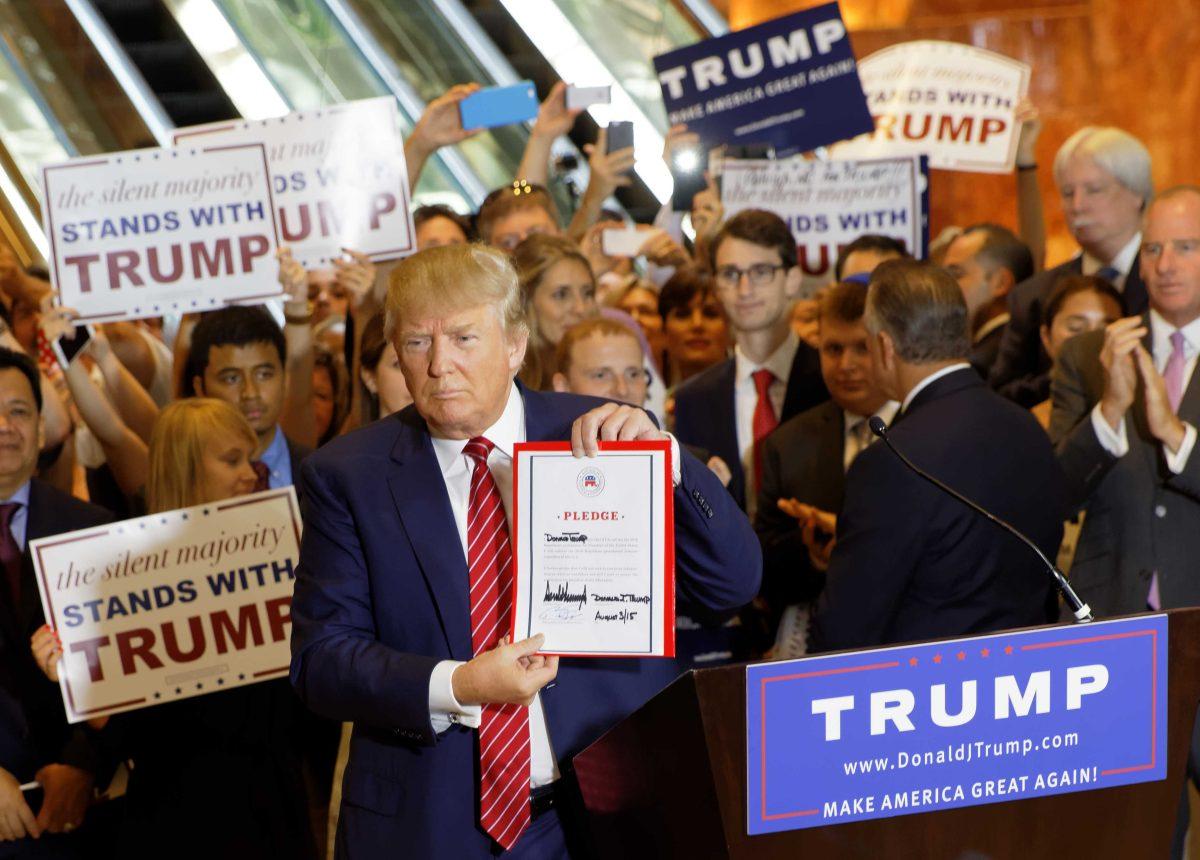Recently dropping in the polls, Donald Trump’s newest campaign shtick is stoking fear of mass voter fraud among his supporters. Trump has refused to agree to accepting the election results until after they are in, insinuating he will contest the results if he loses — a move that has been rebuked by both Republicans and Democrats.
While voter fraud does happen, law professors, political officials and researchers all agree that the occurrences are far too low to affect election outcomes. Pennsylvania recorded 28 fraud cases from 2000 to 2016, resulting in 17 convictions on charges such as voter impersonation and fraudulent use of absentee ballots according to The Washington Times.
This shows that voter fraud is not a legitimate concern in modern elections because of the small number of times they occur and most cases are caught, resulting in convictions.
The voting process is fragmented, decentralized, and monitored by multiple levels of officers in both parties to make it is “virtually impossible” to rig an election in modern day America, according to Princeton University history professor Julian Zelizer to CNN.
The myth of widescale voter fraud may be easy to buy into when you are unaware of the political process surrounding voting and support an anti-establishment candidate, but Trump’s half-true facts he’s used to scare his supporters and reinforce his claims that mass voter fraud will affect this election are unsubstantiated.
One of Trump’s claims that 1.8 million deceased people remain registered to vote comes from a Pew Charitable Trust report and is accurate, yet none of these deceased people actually voted. Can you guess why? That’s right — they’re dead. And researchers actually agree that voter fraud through deceased voters who remain registered is rare, according to Rutgers University professor Lorraine Minnite.
Voter fraud through impersonation of voters was determined to be the least likely type of fraud by the U.S. Election Assistance Committee because it is easily discovered and largely ineffective due to the difficulty of implementation on a wide scale.
Trump’s suggestion of sending people to the polls to watch others is dangerous. Forty-nine states with the exception of West Virginia already allow workers to observe polling places on election day, typically one from each party. These poll watchers are instructed to observe from afar and only interact with voters or poll workers if questions over proper law or procedure arises; their main purpose is to record events that can help create better election reform such as the cause of long lines or any problems with voting booths.
Yet Trump’s urging of his supporters, people who already believe the system is rigged because of Trump’s slander — to monitor polling sites will encourage some citizens to volunteer to challenge voters’ eligibility, which could intimidate some voters at the polls. This type of interaction is not the job of poll monitors, and interferes with the fair and democratic process of voting.
Trump always cited the polls in the beginning of this election, and now that he is down he claims they are suddenly lying. Voters should be inspecting statements like that, not the polling locations.
Ryan Thaxton is a 20-year-old mass communication sophomore from Monroe, Louisiana.
Opinion: Concept of mass voting fraud misleading
By Ryan Thaxton
October 26, 2016
Trump signs the Republican loyalty pledge, promising to support whomever the Republican Party would nominate for the presidency in 2016 and to not run as a third-party candidate, were he not to win the nomination himself.





